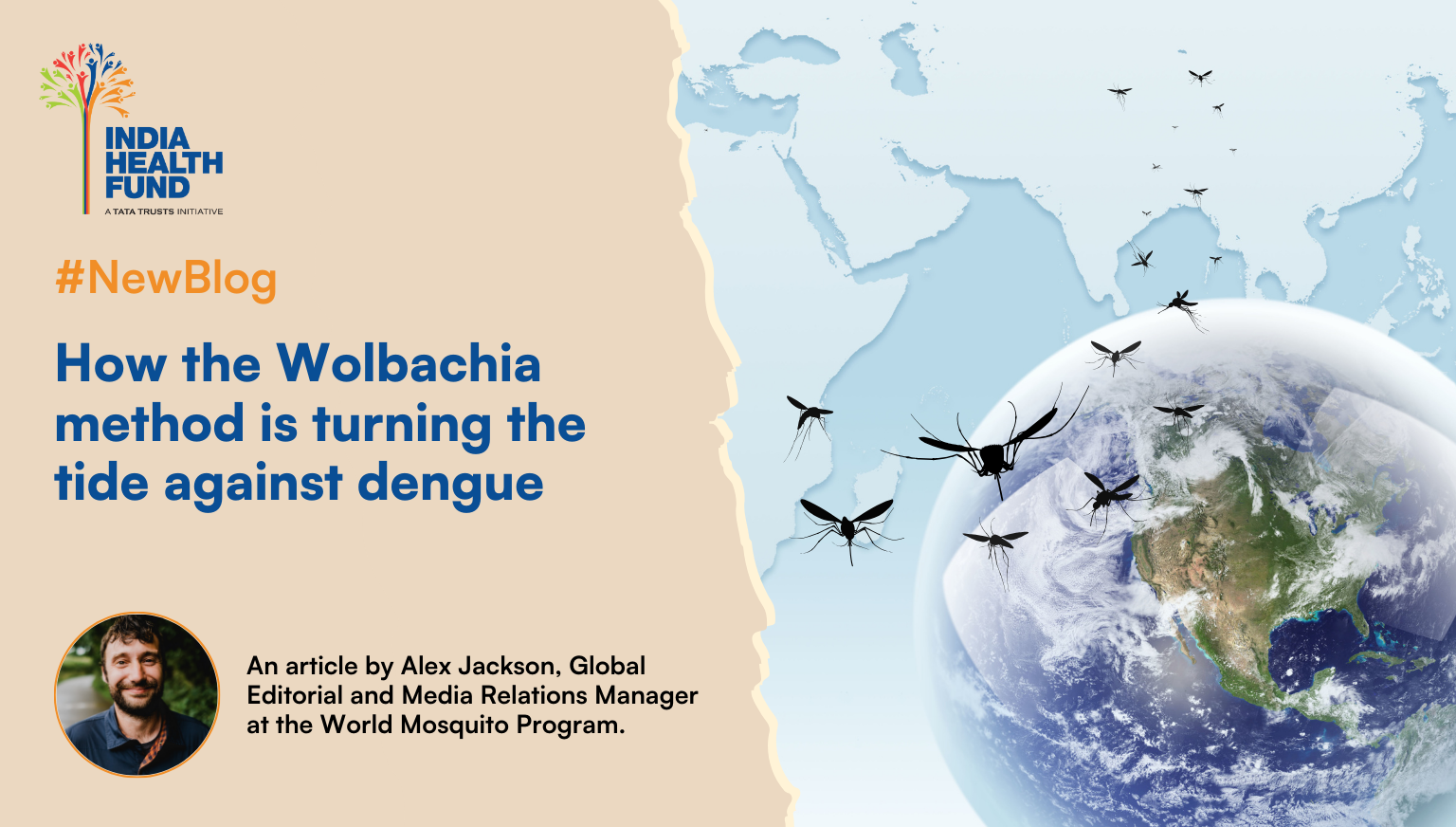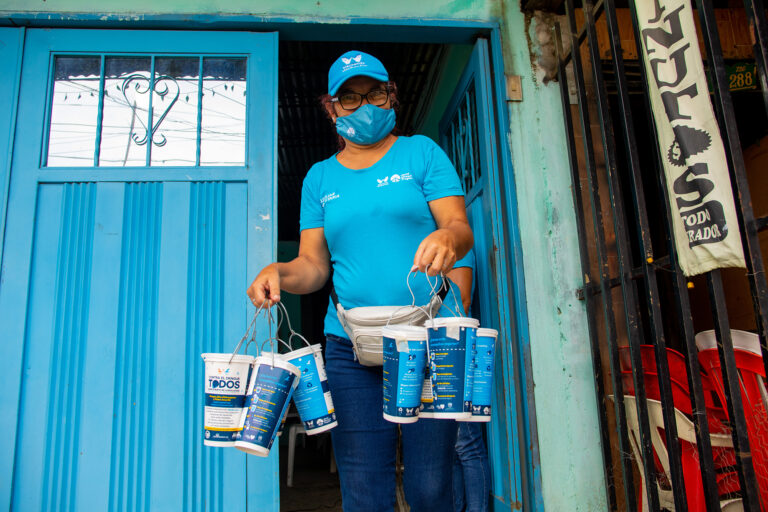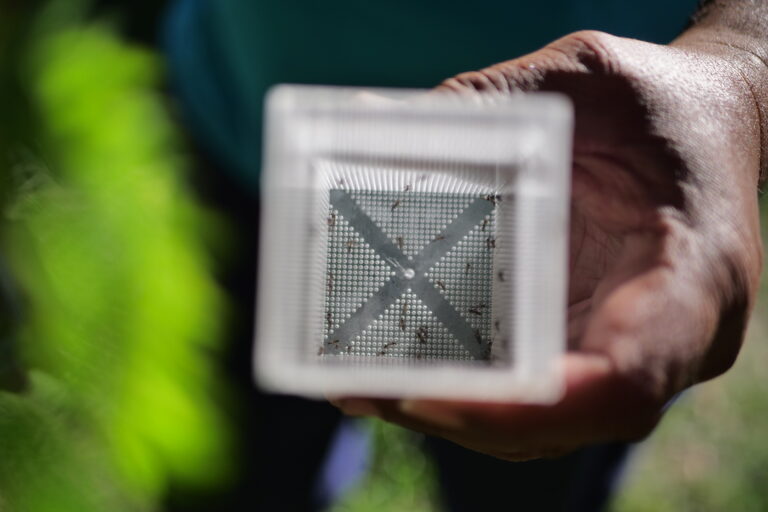
Mosquito-borne diseases kill more than one million people and infect up to 700 million each year, i.e. almost one in ten people across the globe. Climate change, globalization and urbanization are accelerating the speed with which mosquito-borne diseases like dengue, Zika, chikungunya and yellow fever move across regions, and are disproportionately affecting women, young people and children.
Dengue's Burden
Dengue, now the world’s fastest spreading mosquito-borne disease, is transmitted to humans through the bites of aedes aegypti and aedes albopictus mosquitoes. Also known as breakbone fever because of the severe pain it can cause, the disease infects up to 400 million people every year, with more than half of the global population now at risk. Frequent dengue outbreaks across Asia, where 70 percent of the global dengue burden exists, lead to strained healthcare systems, reduced school attendance, and hurt household budgets. India is no exception. In 2024, the worst year on record for dengue worldwide, the country witnessed more than 215,000 dengue cases, with over 180 deaths. Increasingly more countries across the globe are reporting dengue transmissions. It is predicted that roughly 8.5 billion people could be at risk of dengue by 2080. And economists estimate the global cost of dengue to be close to $9 billion per year. The available solutions, such as vaccinations and insecticides, are not working well enough. A solution that is equitable and effective against dengue is badly needed.

Picture Credit: World Mosquito Program
WMP's Wolbachia Method: A Sustainable Solution To Tackle Dengue
A natural bacteria found in half of all insect species, Wolbachia blocks the transmission of disease-causing viruses when introduced into aedes aegypti mosquitoes. Wolbachia was once thought to be a microorganism of insects with little consequence to human health. US scientists Marshall Hertig and S. Burt Wolbach discovered the bacterium in the common house mosquito, Culex pipiens, later naming it Wolbachia pipientis in 1936. But little research was ever conducted on it until the 1970s. The naturally occuring bacteria has evolved to live inside the cells of hundreds of thousands of insect species including butterflies, moths and many different mosquito species (but not the Aedes aegypti mosquito that transmits dengue). It has maintained this lifestyle for tens of thousands of years. In 2009, WMP made the crucial breakthrough that the Wolbachia bacterium actually prevents dengue replication.
Short-term releases of Wolbachia mosquitoes in dengue-affected communities allow Wolbachia to spread into the local mosquito population, effectively ‘immunizing’ people against dengue and other viruses. What started as an ambitious research project in Scott O’Neill’s laboratory in Australia in the 1980s has today transformed into a world-leading programme protecting millions of lives. The World Mosquito Program (WMP), a global non-profit, aims to bring an end to the agony and devastation caused by these mosquito-borne diseases with its pioneering one-time Wolbachia method. WMP’s scalable, sustainable, non-GMO solution is safe for people and the planet and is significantly reducing mosquito-borne diseases in 16 countries around the world, protecting more than 13.5 million people.
In Indonesia, following a large three-year randomized controlled trial, the city of Yogyakarta showed a 77 percent reduction in dengue cases and an 86 percent reduction in dengue hospitalizations, upon release of Wolbachia mosquitoes. In Australia, WMP effectively eliminated dengue as a public health concern with a 98 percent reduction in transmission rates. More recent impact from Colombia has seen three and half million people in the Aburrá Valley protected. Medellín, Itagüí and Bellow are now consistently among the lowest ranked cities in the country for dengue incidence. Niterói, WMP’s first fully protected Brazilian city, once one of Rio State’s highest-ranking cities for dengue rates, is now consistently one of the lowest, following Wolbachia establishment.

Picture Credit: World Mosquito Program
The Path Ahead
WMP’s goal is to reach the greatest number of people in the shortest amount of time. In Brazil, it is hoped the success of Niterói will be replicated across much of the country in the coming years. WMP, alongside Fiocruz and the Ministry of Health, have great ambitions to protect more than 200 million people in the country over the next decade. The biggest mosquito production facility in the world, which is set to open in April this year, will play a major part in dramatically expanding access across Brazil. The Curitiba-based facility will produce roughly five billion mosquito eggs annually at a rate of up to 100 million per week in the initial stages. Other new projects including WMP’s first in Africa, Senegal, and one in Asia’s youngest nation, Timor Leste, also known as East Timor, will see further global expansion. Global partnerships are a crucial part of the program’s success, whether that’s partnering directly with communities, national governments, research and technical partners, NGOs and corporate companies or philanthropists and major donors.
As the planet continues to warm and climate change lengthens the mosquito season, disrupting and altering rain patterns, the world’s deadliest creature will expand its geographical range to new regions and re-emerge in areas where mosquito numbers had subsided for decades. It’s more important than ever to act now against mosquito-borne diseases with innovative vector control tools.
Know more: How WMP’s Wolbachia method works
About the Author:

Alex Jackson is the Global Editorial and Media Relations Manager at the World Mosquito Program. He is a trained journalist with more than 18 years’ experience in journalism and media and has filed stories from across the world, contributing to global outlets including The Guardian, BBC, Japan Times, Mail and Guardian, Scientific American and Nature, among others.
